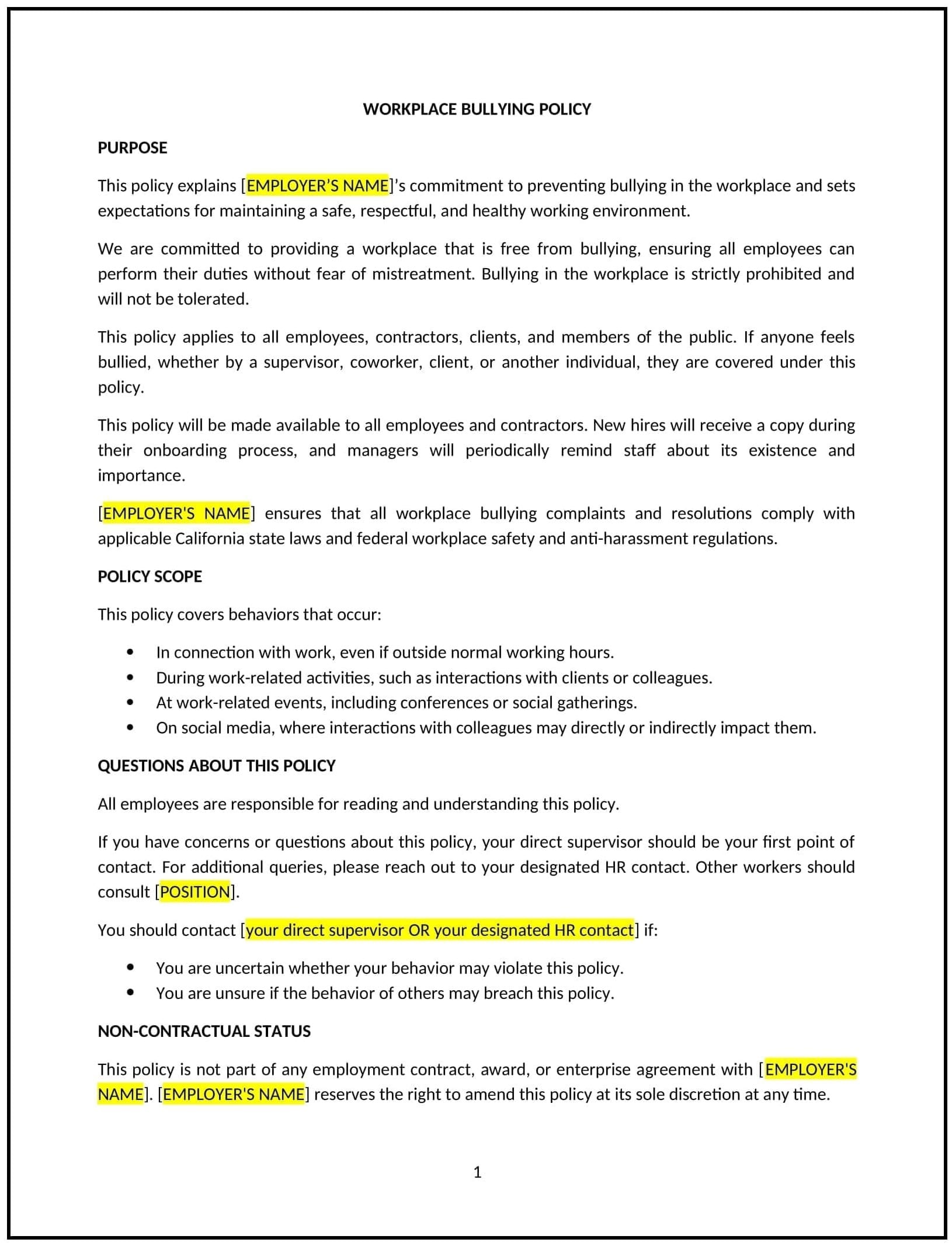Workplace bullying policy (California): Free template
Got contracts to review? While you're here for policies, let Cobrief make contract review effortless—start your free review now.

Customize this template for free
Workplace bullying policy (California)
In California, a workplace bullying policy provides businesses with guidelines to address and prevent bullying behaviors that may disrupt a respectful and productive work environment. While California law, such as the Fair Employment and Housing Act (FEHA), does not explicitly prohibit all forms of bullying, it does require employers to provide harassment prevention training that includes abusive conduct.
This policy outlines prohibited behaviors, reporting procedures, and the business’s approach to addressing workplace bullying. By implementing this policy, California businesses can foster a safe, inclusive, and professional workplace.
How to use this workplace bullying policy (California)
- Define bullying behaviors: Clearly describe prohibited behaviors, such as verbal abuse, intimidation, or malicious exclusion, and differentiate them from constructive feedback or performance management.
- Communicate reporting procedures: Provide employees with clear instructions for reporting bullying incidents, ensuring confidentiality and protection from retaliation.
- Establish response protocols: Outline how reports of bullying will be investigated and resolved, including potential disciplinary actions.
- Promote awareness: Offer regular training to employees and managers on recognizing, preventing, and addressing workplace bullying.
- Reinforce inclusivity: Encourage a workplace culture of mutual respect and inclusivity to prevent bullying behaviors.
Benefits of using this workplace bullying policy (California)
This policy offers several advantages for California businesses:
- Supports compliance: Aligns with California harassment prevention training requirements under FEHA.
- Enhances workplace culture: Promotes a respectful and professional work environment, improving morale and collaboration.
- Reduces risks: Mitigates the likelihood of disputes or turnover resulting from bullying behaviors.
- Encourages accountability: Provides clear guidelines and consequences for inappropriate behaviors.
- Builds trust: Demonstrates the business’s commitment to employee safety and well-being.
Tips for using this workplace bullying policy (California)
- Reflect California-specific considerations: Include bullying prevention in required harassment training under FEHA.
- Train employees and managers: Provide regular training to ensure awareness of the policy and its enforcement.
- Encourage open communication: Create a supportive environment where employees feel safe reporting concerns about bullying.
- Document incidents: Maintain records of reported incidents and their resolution to ensure transparency and legal compliance.
- Review regularly: Update the policy to reflect changes in California laws or workplace practices.